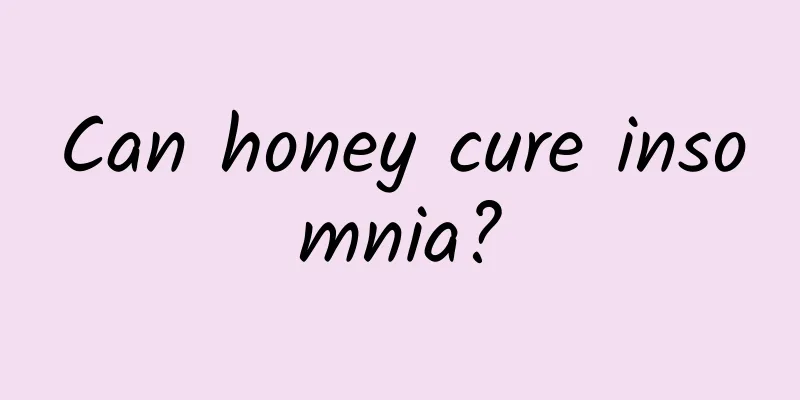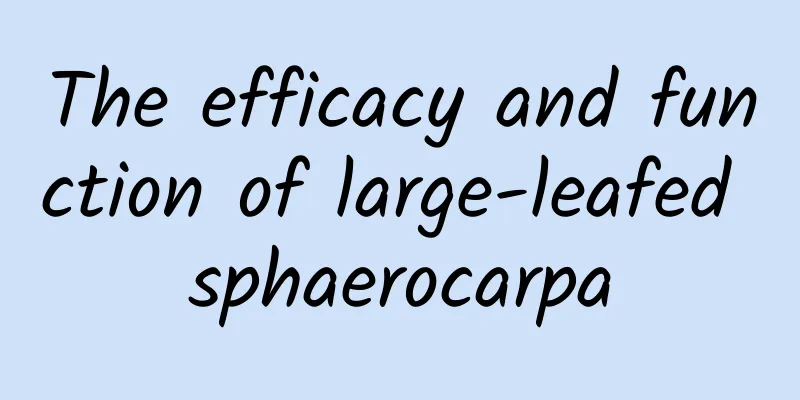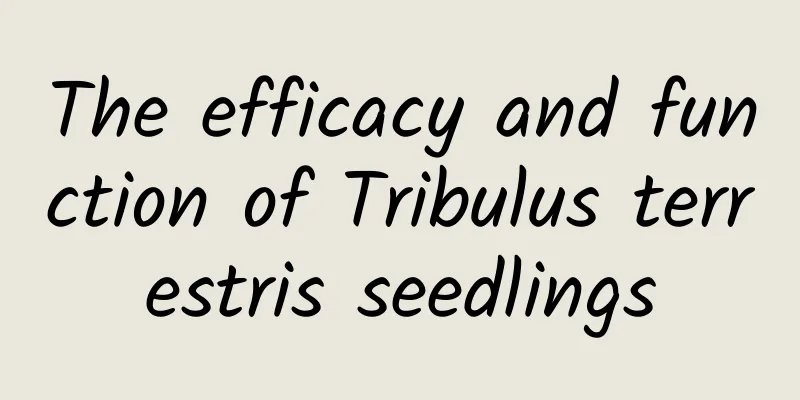Can honey cure insomnia?

|
Some people suffer from insomnia because they are under too much mental stress during the day, and even when they go to bed at night, the mental stress still remains in their brains. If you suffer from insomnia at night, it will affect your mental state the next day, so many people want to cure their insomnia. The medicinal value of honey is known to everyone, so can honey be used to treat insomnia? Insomnia refers to the inability to fall asleep or stay asleep, resulting in insufficient sleep, also known as sleep onset and sleep maintenance disorders. Traditional Chinese medicine also calls it: insomnia, unable to sleep, unable to lie down, and unable to close the eyes. It is a disease characterized by the frequent inability to get normal sleep. Symptoms such as difficulty falling asleep, too short sleep depth and (or) frequency, early awakening, insufficient sleep time or poor quality are caused by various reasons. Common causes of insomnia include environmental factors, individual factors, physical factors, mental factors, emotional factors, etc. According to the theory of traditional Chinese medicine, the main cause of insomnia is organ dysfunction, especially the inability to coordinate the heart's warming yang function and the kidney's nourishing yin function, qi and blood deficiency, and imbalance of yin and yang. Therefore, to avoid insomnia, you should drink less coffee and tea that interfere with sleep, drink less alcohol, or use methods such as music sleep machines to adjust yourself. There are 8 ways to use honey to treat insomnia: 1. Jujube, longan and honey tea for insomnia 20 grams of jujube and 20 dried longans. Put the above medicines into the pot, add 2 cups of water, simmer over low heat, let cool after removing from heat, and add a little honey. Drinking it as tea can help you sleep soundly. 2. Ganmai Dazao Decoction for Insomnia 15 jujubes, 30 grams of wheat, 10 grams of licorice, and appropriate amount of honey. Remove the core of the jujube and put it into a casserole together with other medicines. Add appropriate amount of water, boil it over high heat and then continue to simmer for 15 minutes over low heat. Filter the decoction, add honey, eat the jujube and drink the soup. Take 1 dose daily, morning and evening. One course of treatment is 10 consecutive days. This prescription has the functions of nourishing the heart and calming the mind, harmonizing the stomach and relieving urgency. It can treat symptoms such as mental confusion, irritability, restless sleep, insomnia and hysteria. Modern medical research has found that this soup is effective for sub-healthy people with poor sleep, especially those with menopausal syndrome. Long-term use has a tonic effect on symptoms such as anemia, thrombocytopenic purpura, menopausal sweating, restlessness, and difficulty controlling emotions. Note: Wheat is sweet and cool in nature, nourishes the liver and heart, relieves restlessness and calms the mind; licorice is sweet and mild, nourishes the heart qi, harmonizes the stomach and relieves urgency; jujube is sweet, warm and moist in nature, replenishes qi and harmonizes the stomach, moistens dryness and relieves urgency. 3. Lily Bulbs and Jujube Honey for Insomnia 50 grams of lily (thousand), 10 grams of pine nuts, 20 grams of sour jujube kernels, 15 grams of jujubes, and 30 grams of honey. Take lily, pine nut kernel and jujube kernel, put them into a casserole and boil them twice, remove the residue and mix them into a large bowl; add jujube and 200 ml of water, simmer for 30 minutes on low heat; remove from heat, add honey and stir well. This prescription nourishes the heart and soothes the mind, moistens the lungs and strengthens the spleen. It is effective for those suffering from insomnia accompanied by restlessness, sweating, palpitations, and forgetfulness. Note: Lily can nourish yin and moisten the lungs, clear the heart and soothe the mind; cypress seed can nourish the heart and soothe the mind, moisten the intestines and promote bowel movements; Chinese jujube seed can nourish the heart and soothe the mind, soften the liver and restrain sweat; jujube and honey have the effect of strengthening the spleen and soothing the mind. The combination of the five ingredients has the effects of moistening the lungs, nourishing the heart, softening the liver, and strengthening the spleen, and can have a calming and hypnotic effect. 4. Yellow flower, Albizzia jujube and honey soup for insomnia 30 grams of yellow flower, 10 grams of julibrissin, 10 dates, and appropriate amount of honey. Wash the chrysanthemums, put them into the pot together with the julibrissin flowers, boil them in water to remove the residue and take the juice, then stew them with jujubes and add honey. Take 1 to 2 times a day for 7 to 10 days. This prescription can relieve restlessness, depression and calm the mind. It is suitable for palpitations and insomnia caused by liver qi disharmony. 5. Honey and jujube paste for insomnia Use 1000 grams of fresh jujube, wash, remove the core, take out the flesh and mash it, add appropriate amount of water and simmer over low heat, filter out the juice, mix in 500 grams of honey, stir well on the fire to make jujube paste, and bottle it for later use. Take 15 ml each time, twice a day, continuously to prevent and treat insomnia. Note: Jujubes have a calming effect and can relieve mental tension, restlessness, insomnia or general menopausal syndrome, and treat depression. For modern people living under stress, jujube is a natural nerve sedative with no adverse reactions. The flavonoid compounds (flavonoid-di-glucoside A) contained in jujube have sedative, hypnotic and blood pressure lowering effects. Among them, the isolated naringenin C glycosides have central nervous system inhibitory effects, that is, they reduce spontaneous movements and stimulating reflexes, and have tonic and cataleptic effects. Therefore, jujube has the effect of calming the mind and tranquilizing the mind. 6. Fresh flower leaf honey soup for insomnia 15 grams of fresh flowers and leaves, 30 grams of red beans, and 2 tablespoons of honey. Wash the peanut leaves and red beans, put them in a pot, add appropriate amount of water and boil them into soup, discard the peanut leaves, add honey, drink the soup and eat the beans. This is the daily dose, divided into 2 doses. This medicinal food has the effect of nourishing blood and calming the mind. It is suitable for people suffering from neurasthenia and insomnia. 7. Honey lotus root powder treats insomnia Add 200 ml of honey to 50 grams of lotus root powder and boil it on low heat until it becomes a soup. Then add 30 ml of honey and stir well. Take every night before bed. Note: Honey contains a variety of minerals, grape dregs, vitamins, active enzymes and other elements, which can regulate the nervous system and promote sleep. Therefore, eating honey lotus root powder can help promote sleep. 8. Lily, Chinese Yam, Lotus Seed and Honey Porridge for Insomnia Cook 50 grams of fresh lily, 30 grams of Chinese yam, 15 grams of lotus seeds, 10 dates (pitted), and 60 grams of japonica rice into porridge. Add honey and take once a day. effect: Nourishing Yin and Calming the Mind It is suitable for the syndrome of visceral agitation caused by liver-kidney yin deficiency, with symptoms including restlessness, mental confusion, frequent yawning, sadness, crying, as well as palpitations, insomnia and spontaneous sweating. Kind tips To enjoy good sleep quality, you need to eliminate various mental burdens and avoid various mental stimulations. The sleeping environment should be comfortable and quiet. The indoor lighting is soft and the temperature is just right. Develop good living habits and normal sleeping habits. Have an orderly work and rest schedule and a regular daily routine. Avoid taking stimulant beverages (such as alcohol, strong tea, coffee, etc.) before going to bed. |
<<: Wild lily Chinese medicine
Recommend
Seriously, is this guy a fish or a dragon?
The "guest" we are interviewing today i...
Can the drug white peony be soaked in water and drunk?
Many people like to drink tea in life. Different ...
Is plantain edible?
Plantain is of course edible, because it can help...
There is no "Dragon Palace" on the seabed, so why do scientists want to "dive" into the deep sea?
In the vast field of earth science, deep scientif...
What are the effects of Tianshan Snow Lotus?
I believe everyone is familiar with Tianshan Snow...
6 warning signs before a heart attack! Remember these, they can save lives at critical moments!
November 20th is "China's Myocardial Inf...
The efficacy and function of rhubarb
We all want to protect ourselves very well. Many ...
What are the benefits of drinking Artemisia capillaris soaked in water?
Artemisia capillaris is a relatively common Chine...
The role and efficacy of Polygonum multiflorum
Polygonum multiflorum is a well-known precious me...
What are the side effects of pine pollen?
Although pine pollen has powerful health benefits...
"Chang'an 30,000 Miles" is popular, and these details are hotly discussed by netizens
Detail lovers please come in! Unlock the costume ...
What can ginseng be mixed with to make wine to nourish the kidneys?
Kidney deficiency and kidney deficiency problems ...
What are the effects and functions of tea tree essence?
For people with a lot of pimples on their faces, ...
Were the Yue people 2,500 years ago "tide-proof architects"? Archaeological excavation of the kingdom of Goujian, King of Yue →
Recently, the "Yue State Archaeology: Shaoxi...
The efficacy and function of hemp rot
As a traditional Chinese medicine, do you know th...









